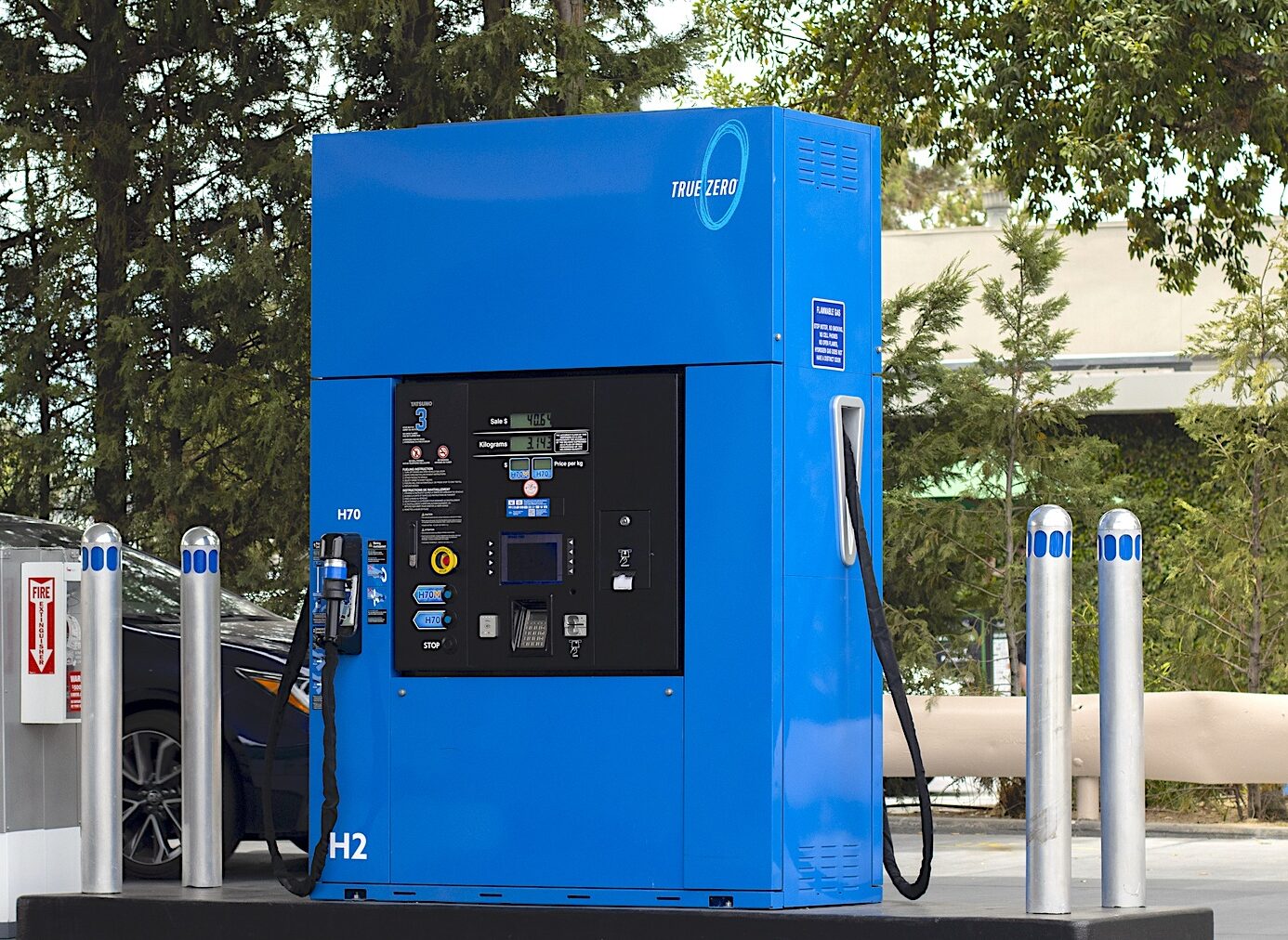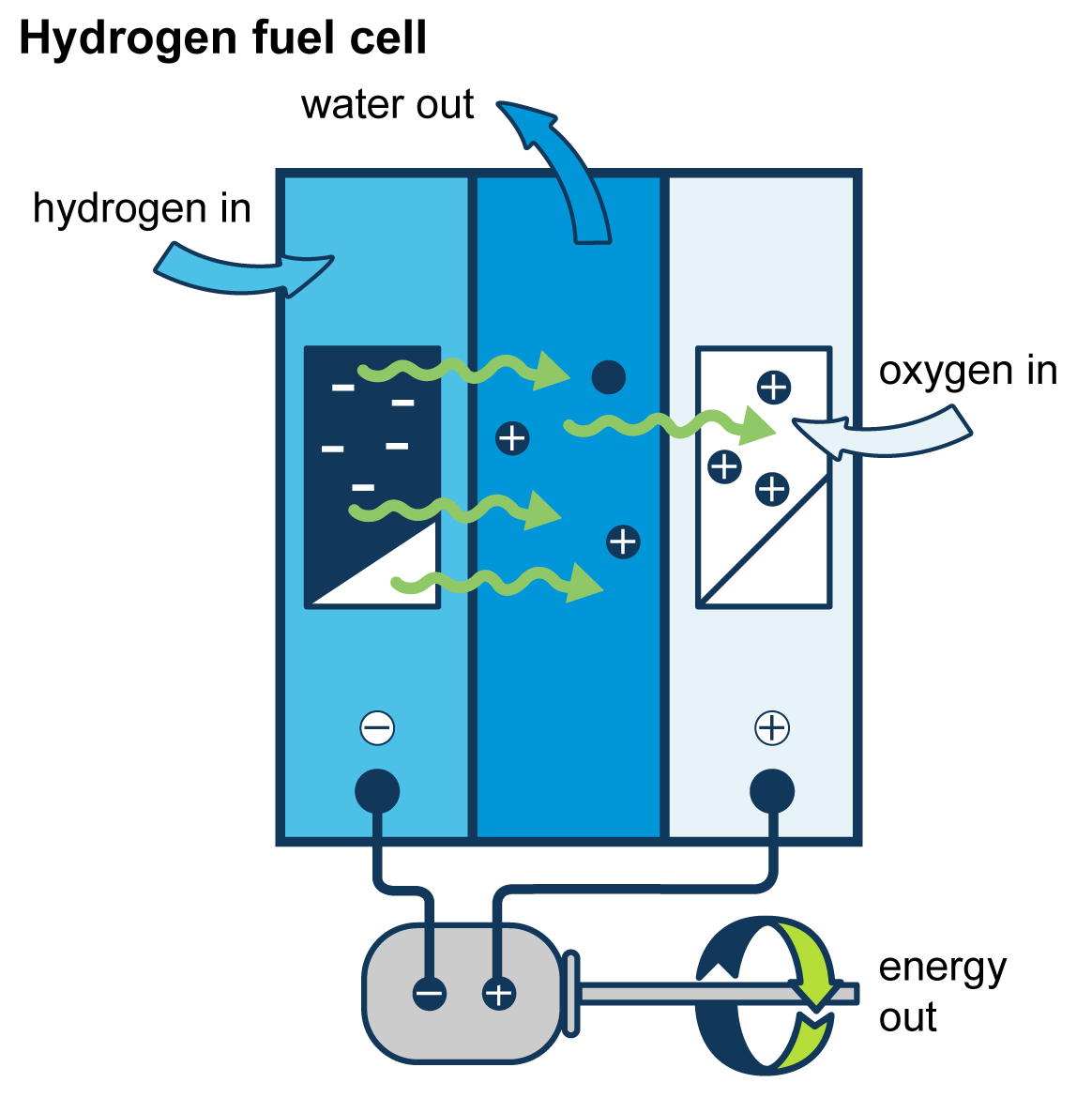Pros and Cons of Hydrogen in the Climate Space
In California’s push for climate change solutions, hydrogen has become a key element: the gas is an energy carrier and can be used as fuel, replacing conventional gasoline and minimizing harmful emissions.
Aviation, industrial processes, and power generation are a few of the many business sectors making the switch to hydrogen as part of decarbonization efforts.
But despite ongoing growth in hydrogen use, it may not always be the answer to clean energy.
KneeDeep Times dug into the pros and cons of the hydrogen economy, including how it can benefit the environment and when it contributes to waste.
When is hydrogen fuel useful?
California’s transportation sector has been at the forefront of innovating with hydrogen power.
This summer in San Francisco, SWITCH Maritime, a company that develops zero-emission ferries powered by hydrogen fuel cells and batteries, launched its inaugural project, the Sea Change ferry. It is the first vessel of its kind in the United States, according to Elias Van Sickle, the company’s co-founder and chief operations officer.
“There are a select handful of other vessels that are similar, but we don’t have any backup diesel generators on our boat. So we are in a league of our own in that regard,” he says.
It is also the only vessel in the world with drinkable emissions.
“Because the fuel cells produce water as part of their ‘exhaust,’ passengers can actually drink the water,” Van Sickle adds. “It’s clean enough.”
Though Alex Jasset, energy justice director at Physicians for Social Responsibility in Los Angeles, is wary of hydrogen’s expanding role in energy transition, he agrees that running hydrogen through a fuel cell eliminates emission issues that would still be present if it was combusted like natural gas.
Hydrogen can also be a good solution if a sector can’t be easily electrified, says Jasset.
“Essentially, if there’s already an electric alternative, [I] would favor that,” he explains. “There are plenty of sectors — steel production is an example that comes to mind — that require very high heat to get to the level to produce steel. I don’t think we’re commercially at a level, right now, where we could just electrify that sector. So if, in the meantime, we can use hydrogen to offset some of the emissions from that sector, that’s a consideration.”

A hydrogen refueling pump at a Chevron gas station in Costa Mesa, California. Photo: I-Stock
Why isn’t hydrogen the perfect solution?
The way hydrogen is created affects its impact.
“You can make hydrogen from renewable energy, or you can make hydrogen from fossil fuels,” Jasset says. “And if you make hydrogen from fossil fuels, it’s actually worse for the environment than just burning the fossil fuels directly.”
According to Jasset, there are also other factors that could make hydrogen use problematic, such as: if it’s being produced “too far” from the usage site; if “all kinds of pipelines” or other infrastructure had to be built for delivery; and if the production site exacerbates environmental justice concerns.
“Those are all things I would ask about that unfortunately we don’t always know the answer to,” he says.
Because hydrogen use is a new technology, it lacks federal, state, and local guardrails and regulations to ensure a positive outcome against climate change.
Other Recent Posts
Boxes of Mud Could Tell a Hopeful Sediment Story
Scientists are testing whether dredged sediment placed in nearby shallows can help our wetlands keep pace with rising seas. Tiny tracers may reveal the answer.
“I Invite Everyone To Be a Scientist”
Plant tissue culture can help endangered species adapt to climate change. Amateur plant biologist Jasmine Neal’s community lab could make this tech more accessible.
How To Explain Extreme Weather Without the Fear Factor
Fear-based messaging about extreme weather can backfire. Here are some simple metaphors to explain climate change.
Live Near a Tiny Library? Join Our Citizen Marketing Campaign
KneeDeep asks readers to place paper zines in tiny street libraries to help us reach new folks.
Join KneeDeep Times for Lightning Talks with 8 Local Reporters at SF Climate Week
Lightning Talks with 8 Reporters for SF Climate Week
ReaderBoard
Once a month we share reader announcements: jobs, events, reports, and more.
Staying Wise About Fire – 5 Years Post-CZU
As insurance companies pull out and wildfire seasons intensify, Santa Cruz County residents navigate the complexities of staying fire-ready.
What’s driving the ‘hydrogen gold rush’?
Billions in federal funding, including through President Joe Biden’s Investing in America agenda and the Inflation Reduction Act, have incentivized hydrogen use across business sectors in recent months. In July, the U.S. Department of Energy signed a landmark $12.6 billion agreement to build a clean, renewable Hydrogen Hub in California.
Jasset believes this funding has fueled the extensive switch to hydrogen, or the “hydrogen gold rush,” without much investigation into whether it’s actually the best solution within a given sector.
“What [I] think would be a better approach is to really assess how much hydrogen would we need to meet our climate goals,” he says. “What is the best way to achieve our energy and climate and environmental justice goals? And then fund that accordingly, not chase this hydrogen funding because it’s available, regardless of whether the project makes sense.”











